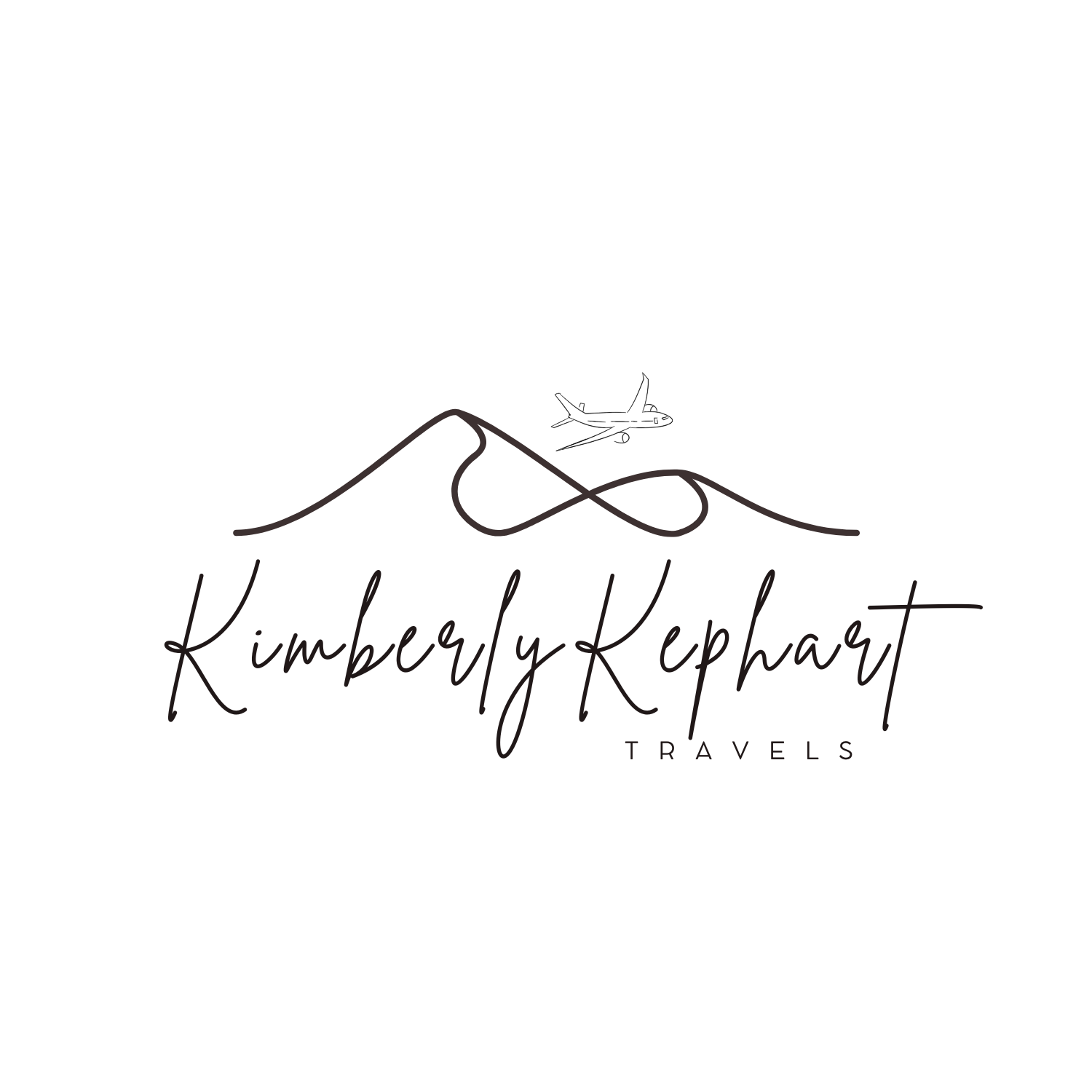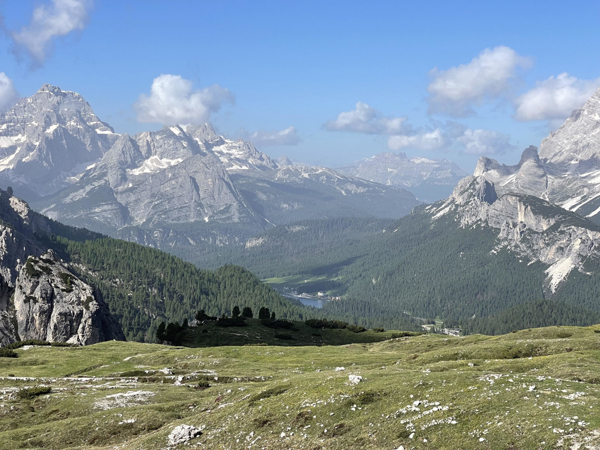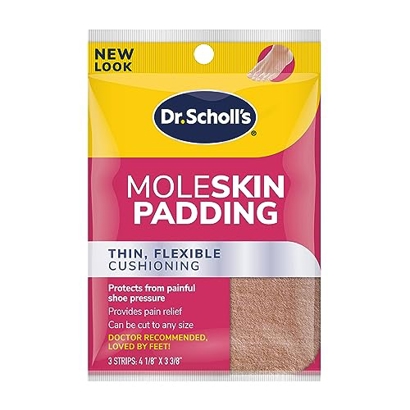What to Pack for a Solo Hut-to-Hut Trek in the Dolomites (AV1, AV2 + Palaronda Tested)

Trekking hut-to-hut in the Dolomites was one of the most empowering experiences of my life — and also one of the trips that made me question every single thing I put into my backpack.
Before my first multi-day trek, I read dozens of packing lists. Most were either wildly unrealistic or written by people who never had to carry that pack up steep alpine terrain for days on end. Since then, I’ve refined this system across multiple routes, including Alta Via 1, Alta Via 2, the Palaronda Trek, and the MADE Trek.
This is the hut-to-hut packing list I actually use — built for rifugio-to-rifugio hiking in the Dolomites, where you carry everything on your back, weather changes fast, and comfort matters more than aesthetics.
I’ll share exactly what I packed (and what I regret bringing), how I pack light for 4–10 days on trail, and what I wish I’d known before my first night in a mountain hut — especially as a woman hiking solo.
Grab the free printable checklist for what I packed on my Alta Via 1 and 2 at the end to simplify your planning and pack with confidence.
This Post Pairs Well With:
- A First Timer’s Guide to the Dolomites
- Where to Stay Before & After the Alta Via 1: A Solo Hiker’s Guide
- How to Make a Reservation at a Dolomites Mountain Hut

At a Glance: Dolomites Hut-to-Hut Packing
You must bring: Sleeping bag liner, layers, toiletries, and earplugs,
Best for: Rifugio-to-rifugio hikes in the Dolomites
Routes tested: Alta Via 1, Alta Via 2, Palaronda Trek, MADE Trek
Trip length: 4–10 days (rewear + rinse system)
Target pack weight: ~4–6kg (without water)
Rifugios provide: Beds, blankets, dinner & breakfast
WHY PACKING LIGHT IS CRITICAL FOR HUT-TO-HUT HIKING
Hut-to-hut trekking in the Dolomites is physically demanding in a way day hiking isn’t. Long distances, sustained elevation gain and loss, and steep descents mean that every ounce in your pack matters — especially by day three.
Because you’re staying in rifugios, you don’t need a tent, stove, or heavy sleep system. But you do need smart layers for fast-changing alpine weather, reliable hydration, blister prevention, and just enough comfort to recover each night.
This packing list is designed for 4–10 days of rifugio hiking, whether you’re tackling Alta Via 1, Alta Via 2, or another multi-day Dolomites trek. The strategy stays the same: pack light, pack functional, and pack with intention.
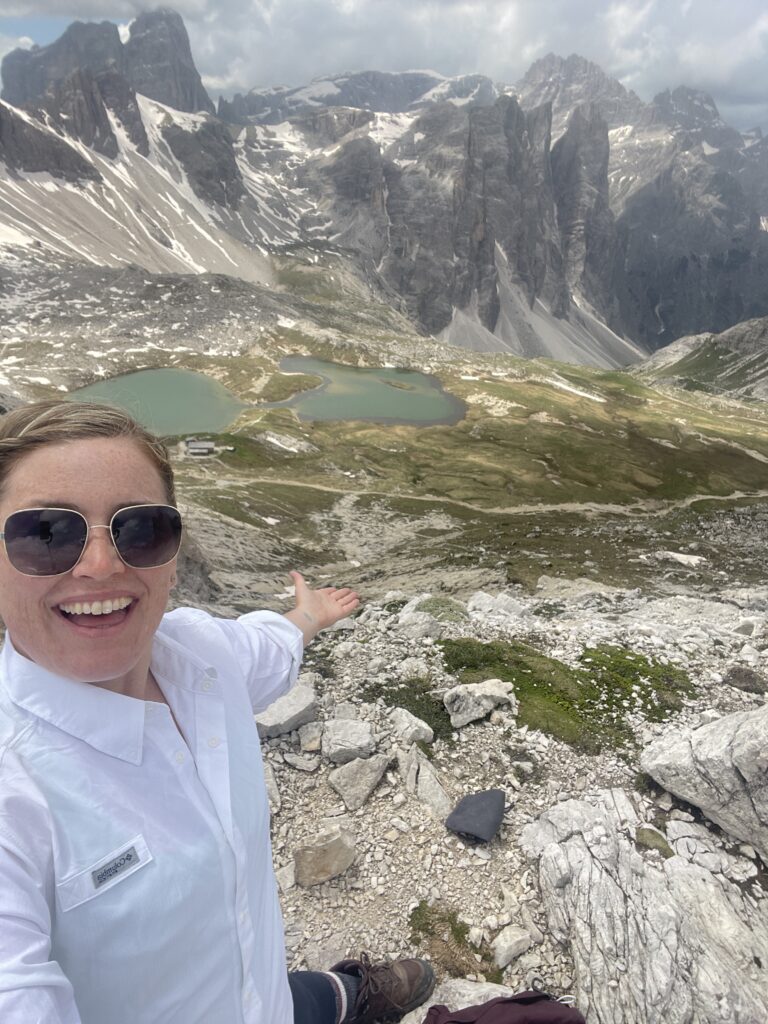
THE RIFUGIO REALITY CHECK (WHAT MOST PEOPLE DON’T TELL YOU)
This section is non-negotiable — it’s what sets your post apart.
Rifugios are not hotels. They are shared mountain huts, often remote, with limited resources and communal sleeping arrangements.
Here’s what that means for packing:
- You’ll sleep in dorm-style rooms (often co-ed)
- Blankets and pillows are provided, but sheets are not
- Showers may be limited, timed, or unavailable
- Drying space is scarce
- Quiet hours are early — earplugs are essential
Once you understand this, packing decisions become much easier.
MY HUT-TO-HUT PACKING RULES
My core rules:
- If it can’t be worn multiple times, it doesn’t come
- If it doesn’t dry overnight, it doesn’t come
- If I won’t use it daily, I question it
- Comfort beats “just in case” every time
For clothing, I follow a simple rotation:
- 2 pair of hiking pants
- 1 sports bra
- 2 shirts
- 1 hut/recovery outfit
- 1 insulation layer
- 1 weather shell
Everything else supports those pieces.
MY COMPLETE DOLOMITES HUT-TO-HUT PACKING LIST
CLOTHING (SUMMER / SHOULDER SEASON ADJUSTABLE)
- 2 moisture-wicking hiking tops
- 1 long-sleeve base layer (sun + warmth)
- 1 fleece or lightweight insulated layer
- 1 waterproof rain shell with hood
- 1 pair of hiking pants
- 1 pair of leggings or shorts for huts
- 4 pairs of wool hiking socks
- 4 pairs quick-dry underwear
- 1 sports bras
- Lightweight beanie + gloves (even in summer mornings)
Why this works: You rinse one outfit, wear the other, and rotate. Rifugios are warm at night — you don’t need more.
FOOTWEAR & BLISTER PREVENTION (DO NOT SKIP THIS)
Blisters will end your trek faster than bad weather. Prioritize foot care over fashion every time.
- Broken-in hiking boots
- Lightweight camp sandals or flip-flops
- Blister kit: moleskin, tape, bandages, toe spacers
- Foot glide or anti-chafe balm
GEAR & ESSENTIALS
- 35–40L backpack (I use a 38L)
- Hiking poles (huge help on descents)
- 2L water reservoir or bottles
- Headlamp
- Sunglasses: I love my Goodr OGs Polarized Sunglasses
- Sunscreen stick: I love my Clear Sunscreen Stick with SPF 50
- Lightweight microfiber towel
- Knife (I get why you can’t bring this with you, I won’t be linking mine)
- Sleeping bag liner (required at most rifugios)
- Trash bag or dry bag for dirty laundry
TOILETRIES, TECH & PERSONAL ITEMS
- Toothbrush, toothpaste, floss
- Small face + body wash
- Face wipes + hand sanitizer
- Menstrual products (bring what you trust)
- Lip balm with SPF
- European plug adapter (Type C / Type F)
- Small first aid kit
- Power bank + charging cords
- Earplugs + sleep mask
- Journal + pen
Plug Converters & Charging in Dolomites Rifugios
Most rifugios in the Dolomites use standard European outlets, but access to electricity can be limited — especially during peak season when everyone is charging phones, headlamps, and power banks at the same time.
Here’s what you need to know before you pack:
Outlet type:
- Type C and Type F (European two-pin plugs)
- The same plug is used in Italy, Austria, Germany, and much of continental Europe
What I recommend bringing:
- A Type C or Type F plug adapter (not a voltage converter — just the plug shape)
- A compact power bank so you’re not fighting for outlets at night
Good to know about rifugio charging:
- Outlets may only be available in common areas
- Charging is sometimes limited to certain hours
- You may need to unplug in the morning
- A small number of rifugios charge a fee for electricity
If you’re traveling from outside Europe (U.S., UK, Canada, Australia), a simple European plug adapter is essential. I personally avoid bulky universal adapters on hut-to-hut treks and stick with a lightweight EU-specific adapter to save space and weight.
Packing Differences by the Dolomites Route
Alta Via 1
Well-traveled and logistically straightforward
Emphasis on: blister prevention, sun protection, lighter pack
Water generally available at rifugios
Best for first-time hut-to-hut hikers
Alta Via 2
Steeper terrain and longer descents
Emphasis on: trekking poles, foot care, hydration strategy
Fewer water refill points on some stages
Mentally and physically more demanding
Palaronda Trek
More exposed and rugged alpine terrain
Emphasis on: warm layers (even in summer), gloves, stable footwear
Earlier starts are recommended due to weather
Some variants require a helmet or via ferrata gear (route-dependent)
MADE Trek
Quieter and more remote feeling
Emphasis on: navigation confidence, battery backup, self-sufficiency
Fewer crowds, fewer services
Ideal for experienced hut-to-hut hikers
You don’t need separate packing lists for each trek — you need one solid system with route-specific tweaks, and that’s what this post provides.
WHAT I REGRET BRINGING (AND WHAT I WISH I HAD)
Regrets:
- Extra leggings I never wore
- Too many snacks (rifugios feed you well)
- Bulky sleeping bag liner, you’ll want a silk sleeping bag liner or a cotton sleeping bag liner
- Full-size toiletries that leaked
Wish I had packed:
- A small laundry line or extra carabiner
- Compression socks for evenings
- One extra lightweight shirt
IF YOU FEEL LIKE YOU PACKED TOO MUCH
IF YOU FEEL LIKE YOU PACKED TOO MUCH …
You’re not alone. Almost every hiker I met on AV1, Palaronda, and MADE said the same thing at some point. The mountains have a way of making us over-prepare — but that extra weight costs you strength, joy, and sometimes blisters.
Here’s how to tell what you really needed vs what you thought you needed:
A Quick Reality Check
- Did you use it every single day? If not, consider leaving it.
- Does it serve more than one purpose? Anything that does two jobs stays; everything else goes.
- Could you borrow/buy it near the trailhead? (Many towns near Dolomite trailheads have basic outdoor stores.)
Items People Almost Always Return Home With
- Excess snacks (most rifugios feed you well)
- Duplicate clothing items
- Bulky towel or comfort items
- Too many electronics/cables
Items People Always Use
- Good socks and liner system
- Trekking poles
- Tiny first-aid items you actually used
- Plug adaptor and battery bank
Smart Storage Solutions For First-Timers
Smart Storage & Drop-Off Strategies
Not everyone wants to carry everything from start to finish — especially on MADE or Palaronda where weather, hut spacing, and logistics vary.
Trailhead Storage Options
- Rifugio Storage Bins: Some larger rifugios offer secure gear storage while you explore a rest day. Contact the hut in advance.
- Trail Town Options: In Cortina, Dobbiaco, Sexten, and other hubs, small luggage storage services or lockers exist near train/bus stations.
- Local Outdoor Shops: Some will hold gear or let you ship it back home via courier for a fee.
- Hotels: Did you do bookend stays? Can you drop your luggage off at the Hotel you finish at? or maybe you’ve got the jitters and want to offload items somewhere?! Ask the hotel.
I usually store an after-hike bag in my car with essentials like extra clothes, and I take one or two items out of my hiking bag if I feel like it’s too much.
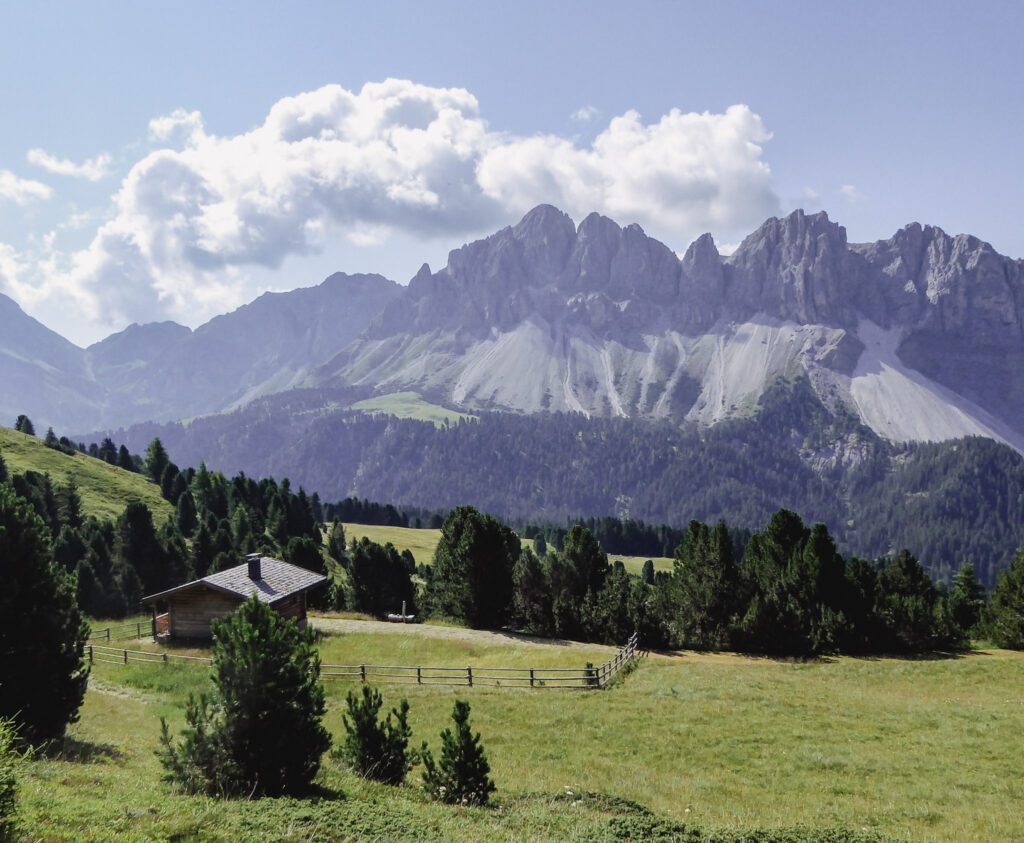
SOLO FEMALE HUT-TO-HUT HIKING IN THE DOLOMITES
Hiking hut-to-hut solo as a woman can sound intimidating — I was nervous too. But established Dolomites routes are some of the safest places in Europe to hike alone.
What helped me feel confident:
- Offline maps downloaded (Komoot + Maps.me)
- Daily itinerary shared with someone at home
- Power bank for GPS and emergencies
- Emergency whistle clipped to my pack
- Trusting my instincts and stopping early when needed
Rifugio Life as a Solo Woman
One of my biggest concerns before starting was staying in co-ed rifugios. Would it feel awkward? Would I get the rest I needed?
Honestly? I ended up loving rifugio culture. Most huts were filled with respectful, like-minded hikers who just wanted a hot meal, a warm bed, and a quiet night. A few things that made me feel more comfortable:
- I packed a quick-dry towel and lightweight pajamas I felt comfortable walking to the bathroom in.
- I brought a travel sleep liner for extra coziness and separation from shared bedding.
- I used earplugs and an eye mask — lifesavers in shared dorms!
- In some rifugios, you can request to be placed in smaller or women-only rooms if they’re available. Just ask when booking or checking in. I was terrified when Rifugio Plose put me in a room with 3 Italian men, but they turned out to be incredibly courteous, even with a 3 am wake-up call.
FREE DOLOMITES HUT-TO-HUT PACKING CHECKLIST
Planning your trek? Grab the free printable packing checklist so you can stop second-guessing and pack with confidence. It includes space for notes, solo hiking tips, and a bonus “what to leave behind” section.
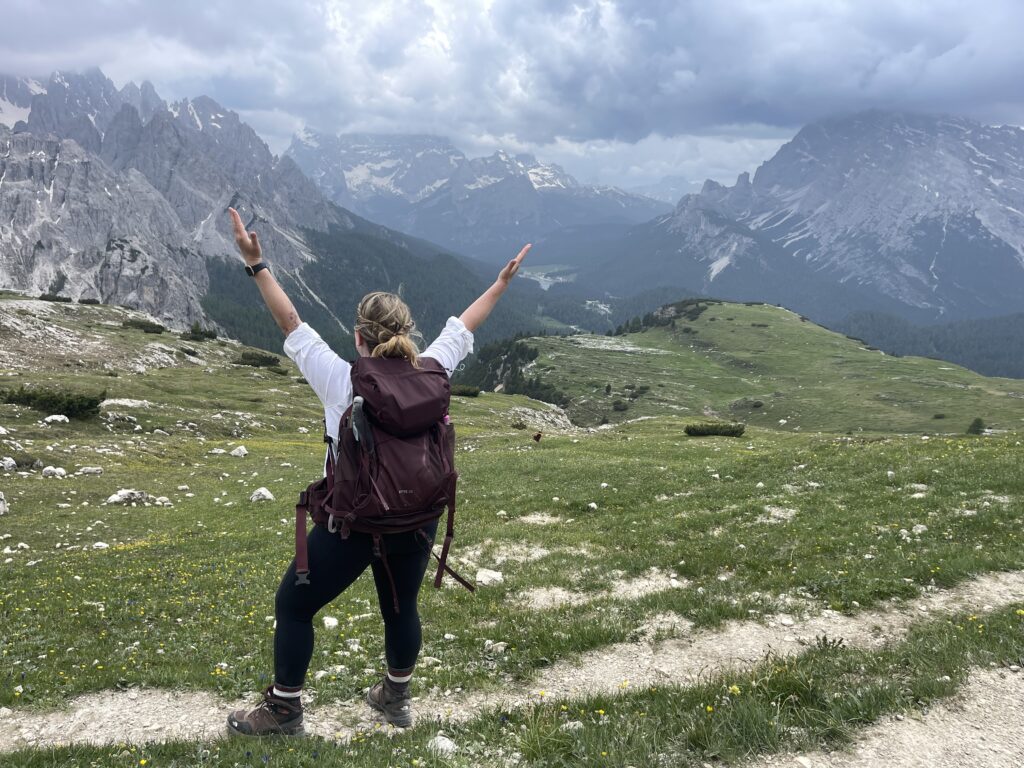
Final Thoughts on What you Should Pack for a Long-Distance Trek in the Dolomites
Ultimately, packing for the Alta Via was the first step…. It forced me to make mindful decisions, travel light, and prepare for both physical and emotional challenges. That perspective mattered, and I had to go through it to get to it.
If you’re about to embark on your own Dolomites trek, I hope this guide helps you feel a little more prepared, a little less overwhelmed, and a whole lot more empowered.
Let me know if you have questions or want to share your packing wins — I’d love to cheer you on!
Frequently Asked Questions: Packing for your first hut-to-hut Trek in the Dolomites
Do you need a sleeping bag for rifugios in the Dolomites?
No. Rifugios provide blankets and pillows, but most require hikers to bring a sleeping bag liner for hygiene. A liner is lightweight, packs small, and is sufficient even on cooler nights.
My pack weighed around 5kg without water. With 2 liters of water, snacks, and camera gear.
Some rifugios offer Wi-Fi, but it’s often slow or limited to common areas. Cell service is spotty on the trail, especially in deep valleys. Always download maps in advance!
Yes, especially from mid-June through September. Many popular rifugios fill up weeks in advance. Booking early also gives you a flexible base to plan your hiking stages.
The hiking season runs from late June to mid-September. July and August are the busiest but offer the most stable weather. September is quieter but colder, especially at night. Last year there was an unexpected snowstorm that came through the area while on the AV1, the weather is unpredictable.
No guide is required. The trails are well-marked and mapped. However, if you’re nervous or new to long-distance trekking, a guided trip (like with Bookatrekking) can ease the logistics.
Yes! Most rifugios have potable water, and many trailside fountains offer drinkable water. Bring a filter or purification tablets just in case, especially on AV2.
Most rifugios provide beds, blankets, dinner, and breakfast. You need to bring a sleeping bag liner, toiletries, earplugs, layers for warmth, and sometimes cash. Towels and showers are not guaranteed.
Not usually. Most rifugios and many trail fountains provide potable water. On more remote routes (like parts of Alta Via 2), a small filter or purification tablets add peace of mind.
Yes. Established routes like Alta Via 1 and Alta Via 2 are well-marked and well-traveled in summer. Rifugios provide built-in community, and preparation—offline maps, battery backup, and route planning—goes a long way.
Save This Post for Later
📌 Planning your trek soon? Pin this blog post on Pinterest so you can come back to it anytime. It’s the perfect reference for when you’re ready to pack!
